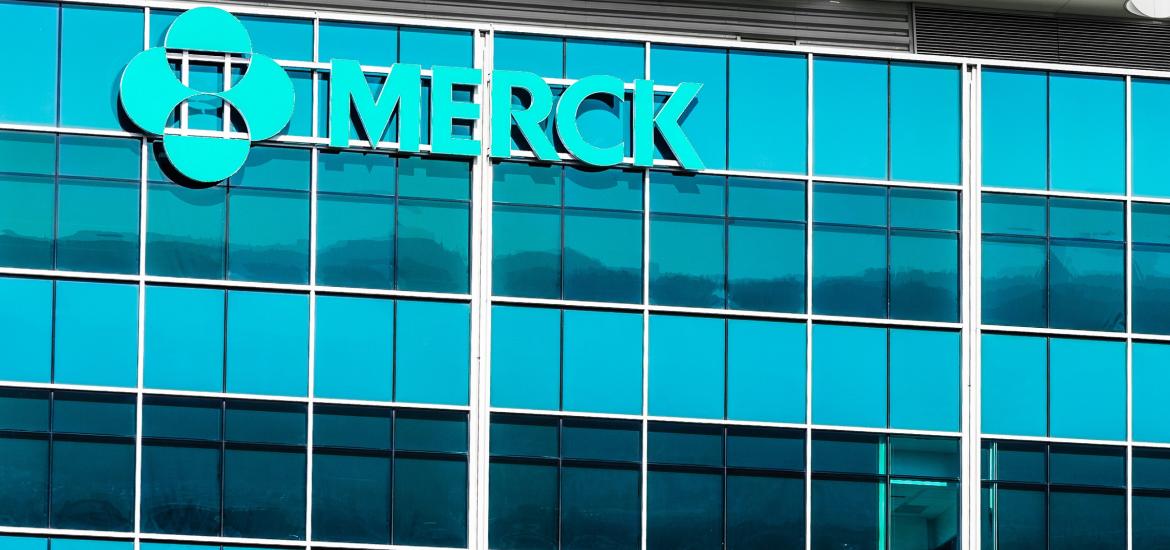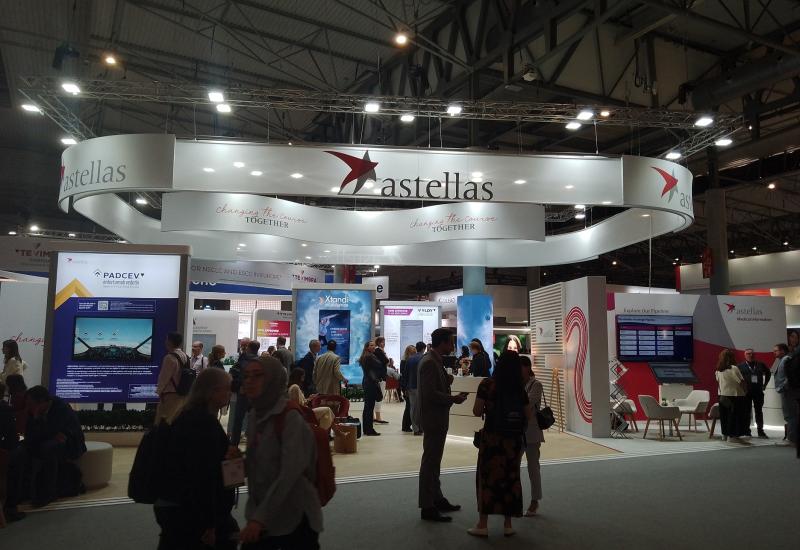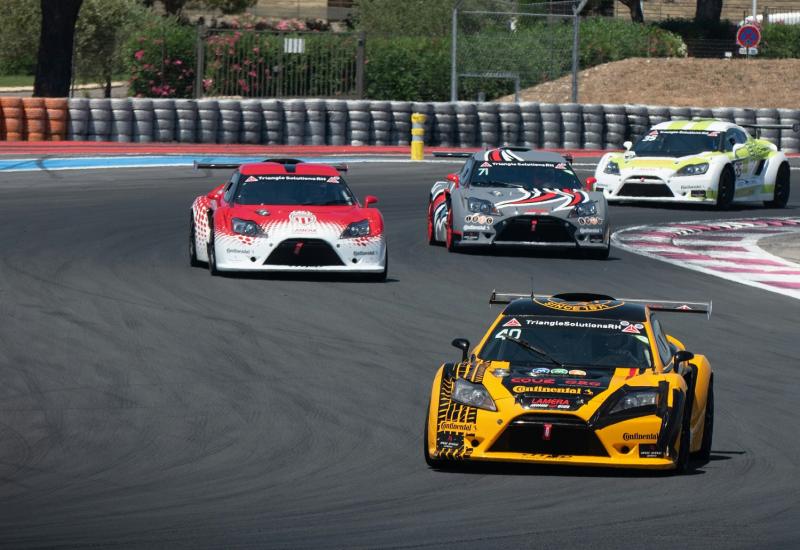
Merck seeks the next Keytruda
The group’s Kelun-partnered TROP2 ADC looks like a bargain, but Merck’s pipeline has big shoes to fill.
The group’s Kelun-partnered TROP2 ADC looks like a bargain, but Merck’s pipeline has big shoes to fill.

With Keytruda set to lose patent protection in 2028 Merck & Co is looking for fresh blood, and antibody-drug conjugates have been a major focus for the group’s recent oncology deals. One tie-up that is now looking clever is the $47m it paid for Kelun’s TROP2-targeting ADC sacituzumab tirumotecan in May 2022.
The recent ASCO meeting saw the first phase 3 data with saci-T, and the project is emerging as a better option than Trodelvy, the approved TROP2 ADC that has disappointed in the clinic several times since Gilead paid $21bn for its maker, Immunomedics. Merck, it seems, shelled out much less for a superior product.
Still, Merck is clearly making a huge investment in saci-T, with a phase 3 programme seeking nearly 10,000 patients, taking into account trials sponsored by both the group itself and Kelun. Indeed, Merck posted details of TroFuse-020, a new pivotal study on clinicaltrials.gov only last week, in second-line cervical cancer.
Speaking to ApexOnco at ASCO, Merck’s head of oncology development, Marjorie Green, wouldn’t be drawn on how much this entire programme would cost, but added: “We’d be investing broadly in any drug we wanted to bring to patients. There’s nothing extraordinary about what we’re doing here compared to development of any other medication.”
The ASCO saci-T data came from a Chinese Kelun-sponsored trial, OptiTROP-Breast01, but Green sees no reason why the results shouldn’t translate to western studies. “Activity with ADCs is pretty consistent.”
Linker love
When asked why saci-T might be better than Trodelvy, despite both projects using the same antibody, she said it was probably down to both the linker and payload. And Merck reckons it has found the sweet spot with the former. “You don’t want your linker so tight that you can’t release the bystander effect, but you don’t want it so loose that you get a lot of off-target toxicity.”
Saci-T and Trodelvy employ different topoisomerase 1 inhibitor payloads: KL610023 and SN-38 respectively.
However, Merck’s real TROP2 rival is Daiichi and AstraZeneca’s datopotamab deruxtecan, which is ahead of saci-T in the race for approval: the FDA is set to make a decision in second-line non-squamous NSCLC (Tropion-Lung01 study) in December, and in second-line ER-positive HER2-negative breast cancer (Tropion-Breast01) in February 2025.
Merck itself has a licensing deal with Daiichi, covering three ADCs and worth a whopping $5.5bn up front. Merck has also gone back to Kelun twice since its original deal, although the up-fronts have remained fairly small.
Spreading its bets
While Merck claims to have one of the industry’s broadest ADC programmes, it is also looking elsewhere and has struck various deals, big and small, across a wide range of technologies. For example, the recent acquisition of Harpoon Therapeutics was focused on bispecifics, while a tie-up with Moderna, first signed in 2016, came into focus at ASCO with three-year data on the personalised neoantigen project mRNA-4157.
This spreading of bets is apparent with a look at Merck’s pipeline, which features 27 oncology projects, Green noted. During the group’s ASCO presentation the company said these cancer projects could generate over $20bn in annual sales by the mid-2030s, on a non-risk-adjusted basis.
However, even if all of these gambles pay off, which is unlikely, the company would need to bring in $25bn to equal Keytruda’s sales last year. Is Merck looking for more ADCs, or more deals in general?
“We’re always open for innovation,” Green replied. “I’ll never say never.”
Merck & Co’s recent notable oncology deals
| Date | Partner/target | Deal type | Area | Project(s)/target(s) | Terms |
|---|---|---|---|---|---|
| Jan 2024 | Harpoon Therapeutics | Acquisition | Bispecific antibodies | HPN328 (now MK-6070, DLL3) | $680m up front |
| Dec 2023 | C4 Therapeutics | Licensing | Degrader-antibody conjugates | Undisclosed | $10m up front |
| Oct 2023 | Daiichi Sankyo | Licensing | ADCs | Patritumab deruxtecan (HER3); raludotatug deruxtecan (CDH6); ifinatamab deruxtecan (B7-H3) | $5.5bn up front |
| Aug 2023 | Astex Pharmaceuticals* | Licensing | Small molecules | p53 tumour suppressor protein | $35m up front |
| Apr 2023 | Proxygen | Licensing | Molecular glue degraders | Undisclosed | Undisclosed |
| Dec 2022 | PeptiDream | Licensing | Peptide drug conjugates | Undisclosed | Undisclosed |
| Dec 2022 | Kelun* | Licensing | ADCs | Seven preclinical projects, incl. SKB410 (Nectin-4) | $175m up front |
| Nov 2022 | Imago | Acquisition | Small molecules | Bomedemstat (LSD1) | $1.35bn up front |
| Aug 2022 | Orna Therapeutics** | Collaboration | RNA therapies | Undisclosed | $150m up front |
| Jul 2022 | Orion | Collaboration | Small molecules | ODM-208 (now opevesostat, CYP11A1) | $290m up front |
| Jul 2022 | Kelun* | Licensing | ADCs | MK-1200 (Claudin18.2) | $35m up front |
| May 2022 | Kelun | Licensing | ADCs | Sacituzumab tirumotecan (TROP2) | $47m up front |
| Apr 2022 | Artiva Biotherapeutics* | Collaboration | NK cell therapies | Undisclosed | Undisclosed |
Notes: *expansion of previous deal; **includes non-oncology applications. Source: OncologyPipeline.
1970













